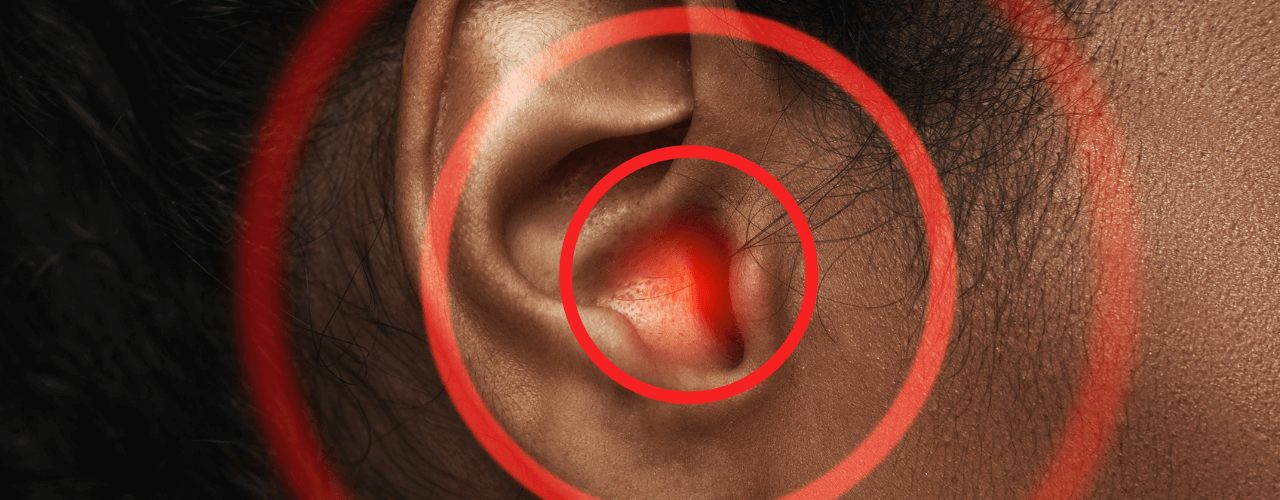Could Your Ear Pain Be Otalgia? Here’s What It Means and How It’s Treated
Ear pain can be worrying, especially when it persists or interferes with your daily life. If you are experiencing ongoing discomfort in one or both ears, it may be otalgia, the medical term for earache. Otalgia can have many different causes, ranging from simple earwax blockage to more complex issues in the throat, jaw, or neck. At Harley Street ENT Clinic, our consultants provide specialist diagnosis, personalised treatment, and long-term care to help you find lasting relief from ear pain.
Why Ear Pain Should Not Be Ignored
While some cases of earache are mild and resolve on their own, persistent or severe pain should always be assessed by an ENT specialist. Otalgia is not a condition in itself but a symptom of an underlying problem. These problems may be confined to the ear or linked to another part of the body. Ignoring the pain can delay treatment and increase the risk of complications, including infections or hearing difficulties. Seeking early medical advice ensures you receive the right treatment at the right time.
When to Seek Help for Otalgia
It is important to know when ear pain requires professional attention. While mild discomfort may not always indicate something serious, certain symptoms suggest that urgent assessment is needed. If you are unsure, it is always best to err on the side of caution and consult a specialist.
You should seek medical help promptly if your ear pain is:
- Severe or persistent despite home remedies
- Accompanied by hearing loss, dizziness, or discharge
- Associated with fever, swelling, or redness around the ear
- Triggered by injury or following a recent infection
Quick evaluation ensures the underlying cause is identified and managed before it becomes more serious.
Types of Otalgia
Because ear pain can originate from different sources, ENT specialists classify otalgia into two main types: primary and secondary. This distinction is key to choosing the right treatment, as not all cases of otalgia come from a problem in the ear itself.
Primary Otalgia
Primary otalgia arises from issues within the ear. Conditions such as infections, trauma, or wax impaction are often responsible. These problems tend to produce pain that is clearly linked to the ear and may include additional symptoms such as discharge, hearing loss, or tenderness when the ear is touched.
Common causes include:
- Ear infections – outer ear infections (otitis externa) and middle ear infections (otitis media) often create sharp or throbbing pain.
- Earwax impaction – excessive wax can press against the ear canal, leading to discomfort.
- Trauma or injury – scratches, foreign objects, or pressure changes can damage the ear canal or eardrum.
Secondary Otalgia
Secondary otalgia occurs when ear pain is referred from another area of the head or neck. Because the ear shares nerve connections with nearby structures, problems outside the ear can still produce pain in or around it. This type of otalgia often makes diagnosis more complex.
Possible causes include:
- Dental issues such as tooth infections or temporomandibular joint (TMJ) disorders.
- Throat problems including tonsillitis, pharyngitis, or inflammation of the throat.
- Neck conditions such as cervical spine irritation or muscular strain.
Distinguishing between primary and secondary otalgia is crucial, and it is one of the reasons expert assessment is so valuable.
Common Causes of Otalgia
There are many different conditions that can lead to otalgia, some straightforward and others more complex. Infections are among the most common, particularly in children, but adults can also be affected. A buildup of earwax or fluid can trigger pressure and discomfort, while skin conditions like eczema may cause inflammation in the ear canal.
Ear pain is not always confined to the ear itself. Problems in the sinuses, throat, teeth, or jaw can all refer pain to the ear, making the discomfort feel as though it originates there. Identifying the correct cause is essential because each requires a different approach to treatment. At Harley Street ENT Clinic, our specialists combine thorough examination with diagnostic tests to uncover the true reason behind your symptoms.
How ENT Specialists Diagnose Otalgia
Accurate diagnosis is the foundation of effective treatment. At Harley Street ENT Clinic, we take a structured approach to assessing ear pain, ensuring that both simple and complex cases are addressed properly.
- Medical history: Your consultant will ask about the nature, timing, and severity of your pain, along with any associated symptoms such as hearing loss, dizziness, or discharge.
- Physical examination: Using an otoscope, we can inspect the ear canal and eardrum for signs of infection, wax buildup, or damage.
- Hearing tests: Audiometry may be carried out to check whether your hearing is affected.
- Further investigations: In some cases, imaging such as CT or MRI scans may be recommended to rule out secondary causes or more serious conditions.
This consultant-led approach ensures you receive a clear explanation of what is happening and a tailored plan for next steps.
Treatments for Otalgia
Treatment depends on the underlying cause of the ear pain. Because no two patients are the same, we create personalised care plans designed to address the specific condition and provide relief.
For infections, medication such as antibiotics or antifungal drops may be prescribed. Pain relief and anti-inflammatory treatments can also reduce discomfort and swelling. If earwax is the cause, microsuction can safely remove blockages without damaging the ear canal. For more persistent issues, minor procedures such as drainage or grommet insertion may be recommended.
When the otalgia is secondary, treatment focuses on managing the source of the referred pain. This might involve dental care, treatment for throat or sinus infections, or physiotherapy for neck-related issues.
After-Care and Ongoing Management
Relieving pain is only part of the process. At Harley Street ENT Clinic, we provide ongoing support to help you recover fully and reduce the risk of recurrence. After-care may involve follow-up appointments to monitor progress, advice on ear hygiene, and practical guidance to avoid further irritation.
Simple lifestyle measures can also play an important role in preventing future discomfort. Protecting your ears from loud noises, keeping them clean and dry after swimming or showering, and managing allergies or sinus issues can all help reduce the risk of recurring problems. At Harley Street ENT Clinic, our goal is to ensure you not only feel better in the short term but also have the knowledge and support to maintain your ear health in the long term.
Our goal is to ensure that you not only feel better in the short term but also have the knowledge and support to maintain your ear health in the long term.
A Specialist Approach to Lasting Relief
Living with ear pain can affect every part of daily life, from sleep to concentration and general well-being. By seeking expert help, you take the first step towards lasting relief. At Harley Street ENT Clinic, our consultants provide clear answers, effective treatment, and personalised care designed around your needs.
If you are struggling with otalgia, don’t wait for it to worsen. Contact our clinic today to arrange a consultation and find out how we can help you move forward with confide












